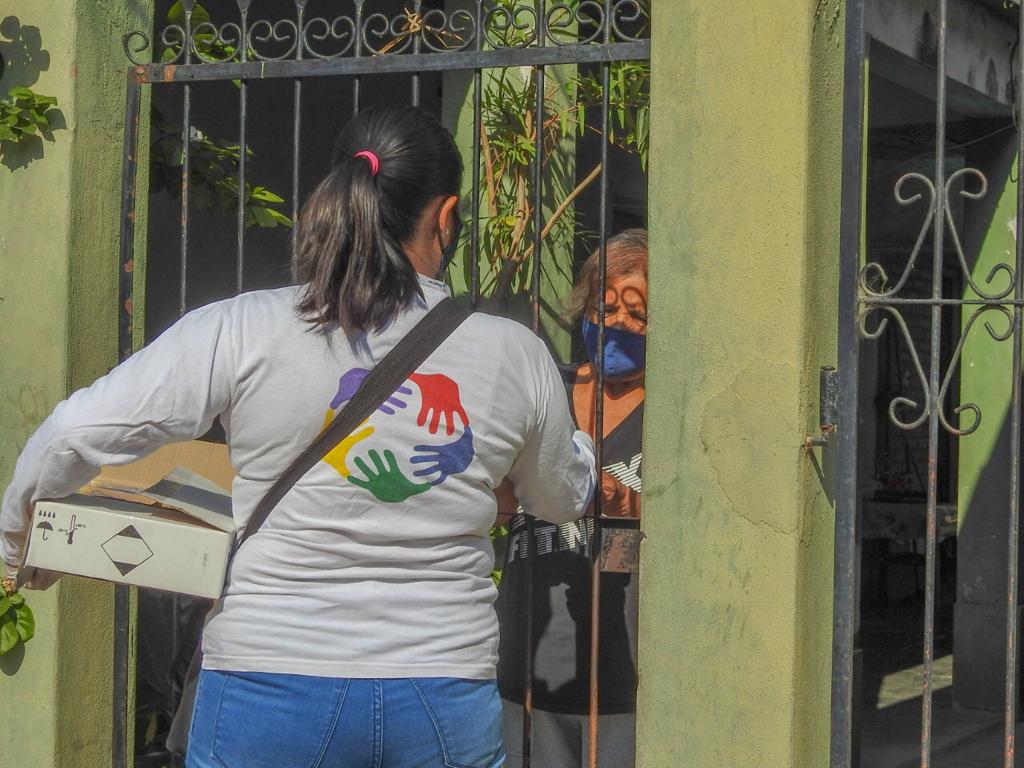If symptoms appear, such as fever, it is important to consult a doctor and not to self-medicate. Permanent prevention actions, both personal and in the house environment, are essential to reduce the risk of dengue transmission.
Buenos Aires, February 2021.-In the summer period, weather conditions favour the proliferation of Aedes aegypti, and urban and domestic mosquito species that transmits dengue, zika and chikungunya; the symtpoms of these viral diseases may be confused with those of COVID-19 virus.
In Argentina, dengue disease occurs as an epidemic outbreak that develops between December and May, when weather conditions favour the proliferation of the vector mosquito. In this context, and in the midst of COVID-19 pandemic, “if a person has fever, a medical consultation as soon as possible is recommended. Consultation can be in a primary health care centre, to the general physician or a by telephone through the toll-free line of each municipality to ask for advice on where to go “, said Tomás Orduna, Chief of the Service of Regional Pathologies and Tropical Medicine of Muñiz Hospital and member of the Scientific Committee of Mundo Sano Foundation.
Regarding self-medication behaviour, which may mask signs or symptoms, Orduna stated that “it is always discouraged. When any sign or symptom that affects the health status appears, if the person self-medicates, medical consultation is delayed and the health condition is worsened”.
Warning signs that may appear as the condition progresses, when there is a presumptive or confirmed diagnosis of dengue, include: irritability or drowsiness, severe abdominal pain, frequent vomiting, tendency to hypotension, gastrointestinal bleeding, and bleeding from the gum and nose.
Primary prevention to avoid bites of an Aedes aegyptimosquito
It is necessary to remember everything that acts as a barrier between humans and mosquitos, such as: use of personal mosquito repellents, environmental insecticides inside houses, use of door and window screens, and mosquito nets on beds.
What can we do to prevent the generation of breeding sites of the mosquito Aedes aegyptiin the domestic environment?
To work on prevention associated with mosquito reproduction in our houses, it is necessary to create the habit of maintaining the house spaces free of elements where water can store for at least one week, since it is there where Aedes aegypti deposits the eggs, generating breeding sites.
Some recommendations to take into account:
· Remove containers that may become breeding sites: objects, unused pots, containers, empty bottles, others
· Always keep water tanks covered and clean the drains and roof gutters frequently
· Replace water from pet water bowls and flower vases every day
· Use the fan in the rooms
What does Mundo Sando do to combat Dengue?
For almost two decades, we have taken diverse actions aimed at preventing and raising awareness about mosquito-borne diseases, such as the program for the surveillance and monitoring of mosquitos in localities of the provinces of Salta, Chaco, Formosa and Misiones. These activities allow us to monitor the levels of Ae. aegypti infestation through our larval sampling, recording of breeding site abundance, and surveillance of oviposition of this species, due to the epidemiological risk posed by the presence of this mosquito in an area affected by outbreaks of dengue, zika and chikunguya.
We also provide municipalities with tools to monitor the activity of this mosquito through the setting of ovitrap networks, whose efficacy has been confirmed in the localities where we have offices. These tools allow the public authorities to determine the spatial distribution of the mosquito, measure the seasonal fluctuation and efficiently manage resources for control.
.
For further information, visit: https://dengue.mundosano.org/
